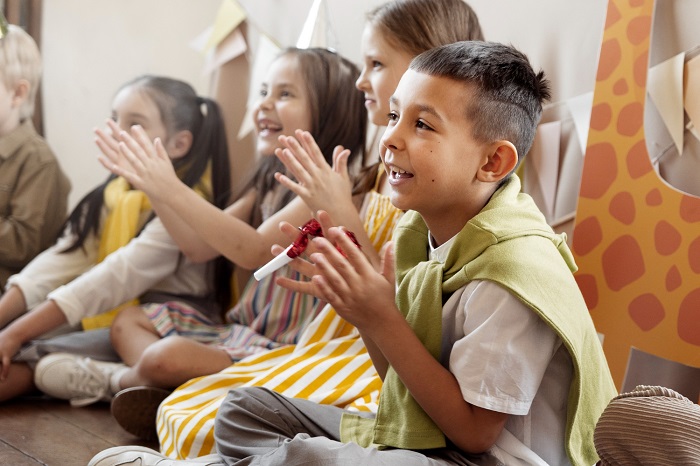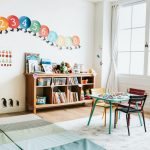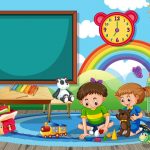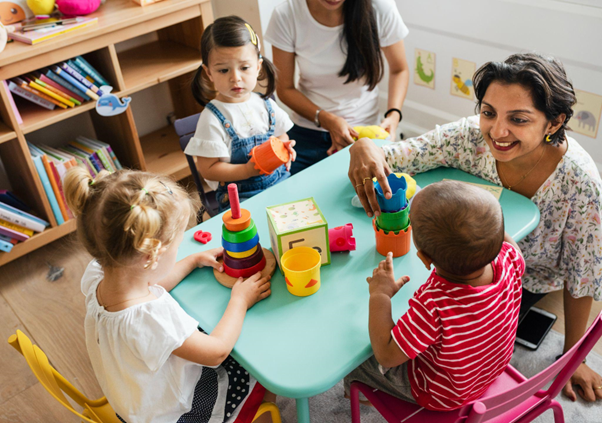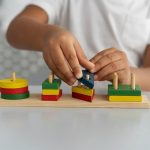As summer approaches, many preschools and kindergartens receive calls from concerned and curious parents. It’s that time of year when schools open their doors for tours, giving families a chance to explore the environment and decide what’s best for their children.
At EuroKids, we do the same. But we also encourage parents to take a well-thought-out and mindful approach when selecting a preschool. After all, preschool marks a child’s very first step into the world of learning, and choosing the right one plays a significant role in shaping their future.
To help make this important decision a little easier for you, we’ve compiled a comprehensive guide on choosing the best preschool for your kid.
How to Choose the Best Preschool for Your Kid?
Here’s a look at the factors to consider when choosing a preschool.
- Teacher Qualifications
- Class Size
- Teacher-Student Interaction
- Safety
- Caring Teachers
- Emphasis on Art
- Gut Feeling
- Discipline Policy
- Free Play
- Structure
What is a preschool without great teachers? Teachers are the heart of any preschool—they guide, nurture, and shape your child’s early learning experiences. Unlike higher-level schools, preschools aren’t always held to strict regulations, which means almost anyone can open one. That’s why it’s so important to be extra careful.
Therefore, always check the qualifications of the person you trust with your child. While a formal degree is ideal, at the very least, they should have completed relevant courses or hold a diploma in early childhood education. If the staff lacks proper training or credentials, looking elsewhere is best.
The last thing you want is for your children to be herded into a classroom like cattle. The best Preschool is a spacious, airy classroom with only a few students packed in.
If more than 15-20 kids are in the classroom, you can be sure they will not get the attention they deserve.
One way to choose the best Preschool is to see if the teachers and their assistants are genuinely interested in communicating with children. Visit the preschools on your checklist and see if the teachers are getting to the kids’ eye level when they talk. Observe closely how they interact with them. If the kids seem lost, the teachers need to do something better.
A preschool’s safety plan must be sound to ensure your toddler is indeed in safe hands. Do your research here. Talk to the school director about the Preschool’s emergency plans and ensure you walk around the school and its playground. If your recce gives you bad vibes, that school might not be the best place for your child.
The teachers might interact well with kids, but how do they come across as individuals? The best preschool will have only cheerful teachers. The last thing you want is a barely smiling teacher. Positive teachers know how to nurture children. If you hear a teacher yelling at kids, that’s an immediate ‘No!’.
Preschool is where children should be allowed to let their innate creativity flourish. Make sure you choose a school that helps them do just that. If you notice no art pasted on the classroom walls or our child bringing home pre-made printouts of artwork or skills that seem like the teacher made them, you want to give that school a miss.
Vibes never lie. Call it instinct or gut feeling; you know what’s best for your child. Look around the school and meet with the teachers and principal. If you walk out of the Preschool thinking, ‘I don’t have a great feeling about this school,’ drop it off your ‘best preschool radar.’
Ask the school director about the preschool’s discipline policy. Ensure the teachers practice positive discipline by patiently explaining to children what constitutes ‘good’ and ‘bad.’ If the school’s rule for teaching children about their mistakes is punishment, it’s far from being the best preschool. Strike it off your list!
Free play is one of the proven ways for children to learn. What’s more, it helps children become socially competent. If there’s not much time for free play, start looking at another preschool.
Kids learn surprisingly well when their days unfold in a particular sequence. Free play might be followed by circle time, outside time, lunch, etc. Without structure, it cannot be apparent to your child. The best preschool will have a robust schedule that encompasses all the children’s activities.
What the Best Preschools Will Teach Your Child?
Here are just some of the skills a great preschool will teach your child
- Knowledge Skills. Everything related to numbers, letters, and words.
- Communication and Social Skills. Through play with children and adults.
- Physical Skills. Like balancing on play equipment.
- Motor Skills. Like in drawing with a pencil.
- Creative Skills. Via drama, music, and crafts.
Conclusion
Choosing the right preschool is a big milestone for you and your child. It’s natural to have questions and concerns—but with the right guidance, you can make a confident decision that sets the foundation for a lifelong love of learning. Need help with your kid’s preschool admission? Check out our blog Guide To Preschool Admissions for a detailed guide. Don’t forget to visit EuroKids Blogs for more insights on your little one’s learning and development.
At EuroKids, we understand how important this first step is. That’s why we focus on creating a safe, nurturing, and engaging environment where children can grow, explore, and thrive. With experienced educators, a play-based learning curriculum, child-first teaching methods, and over 1700+ centres across three countries, we’re here to give your little one the best possible start.





